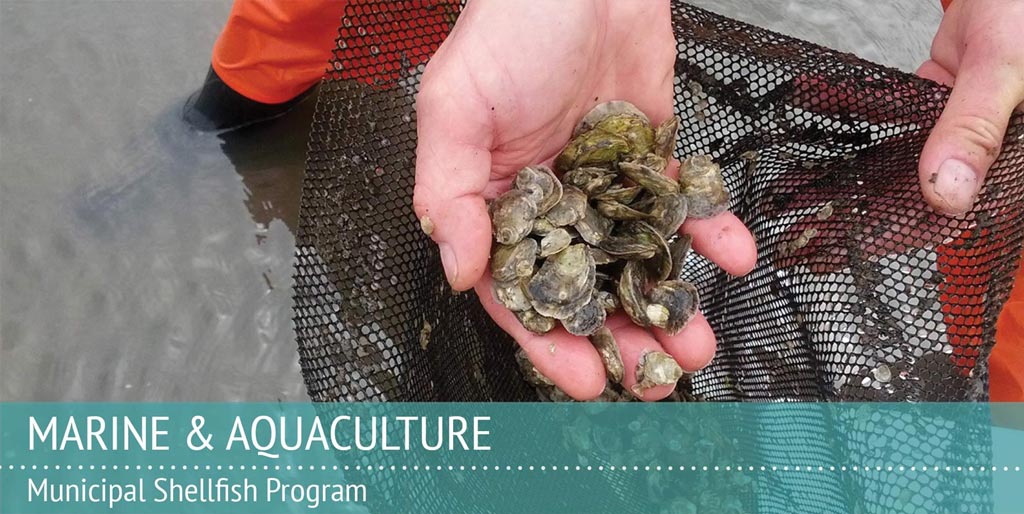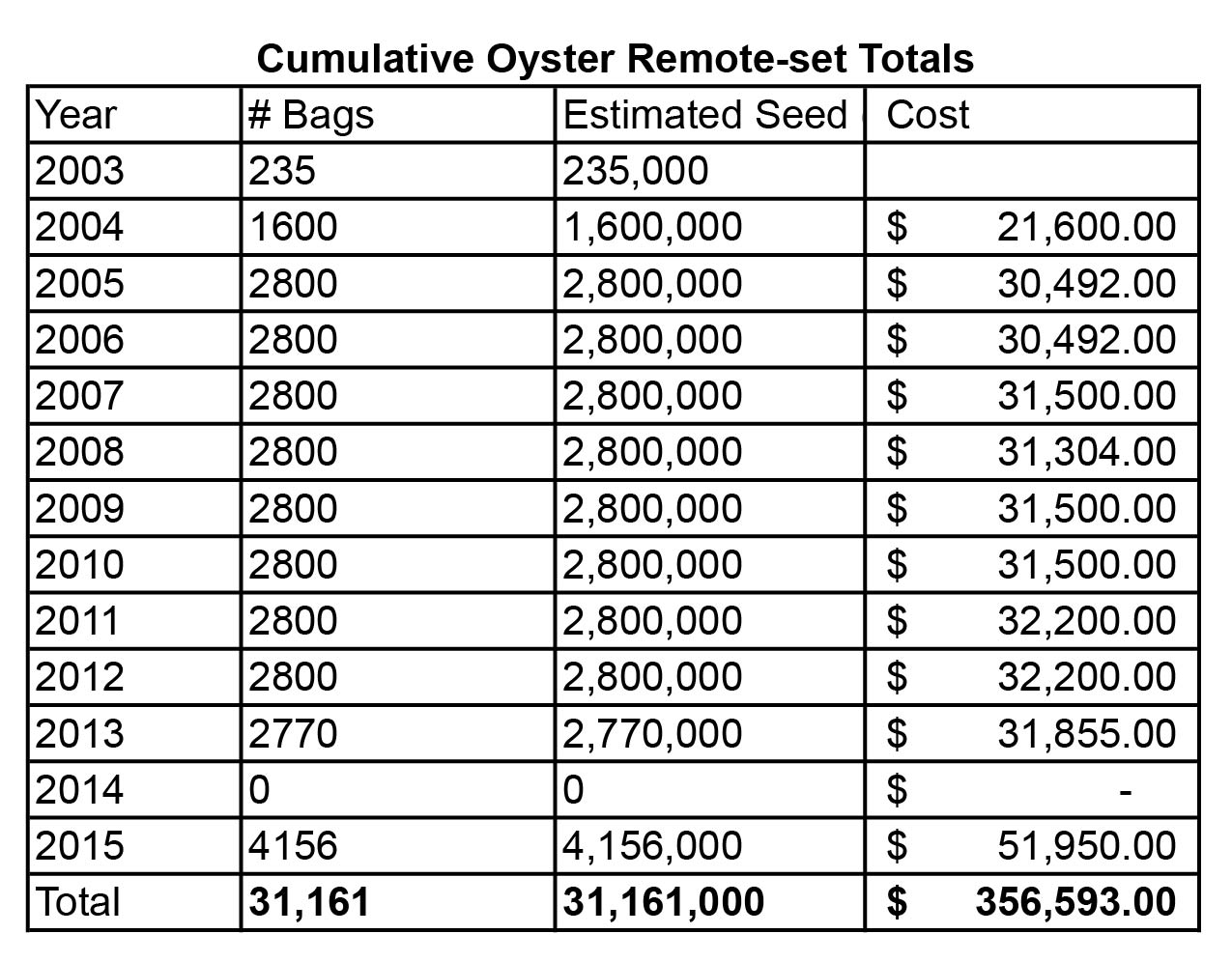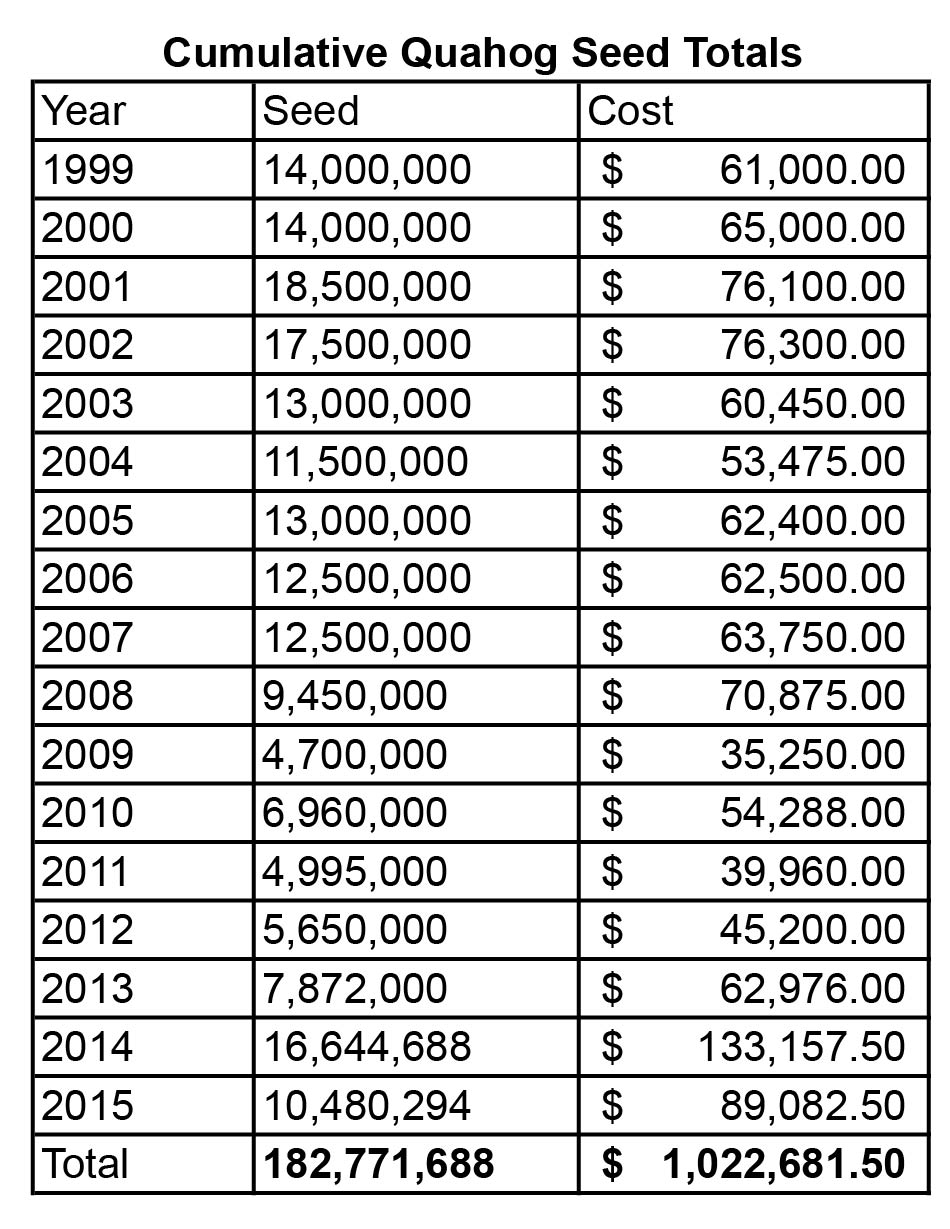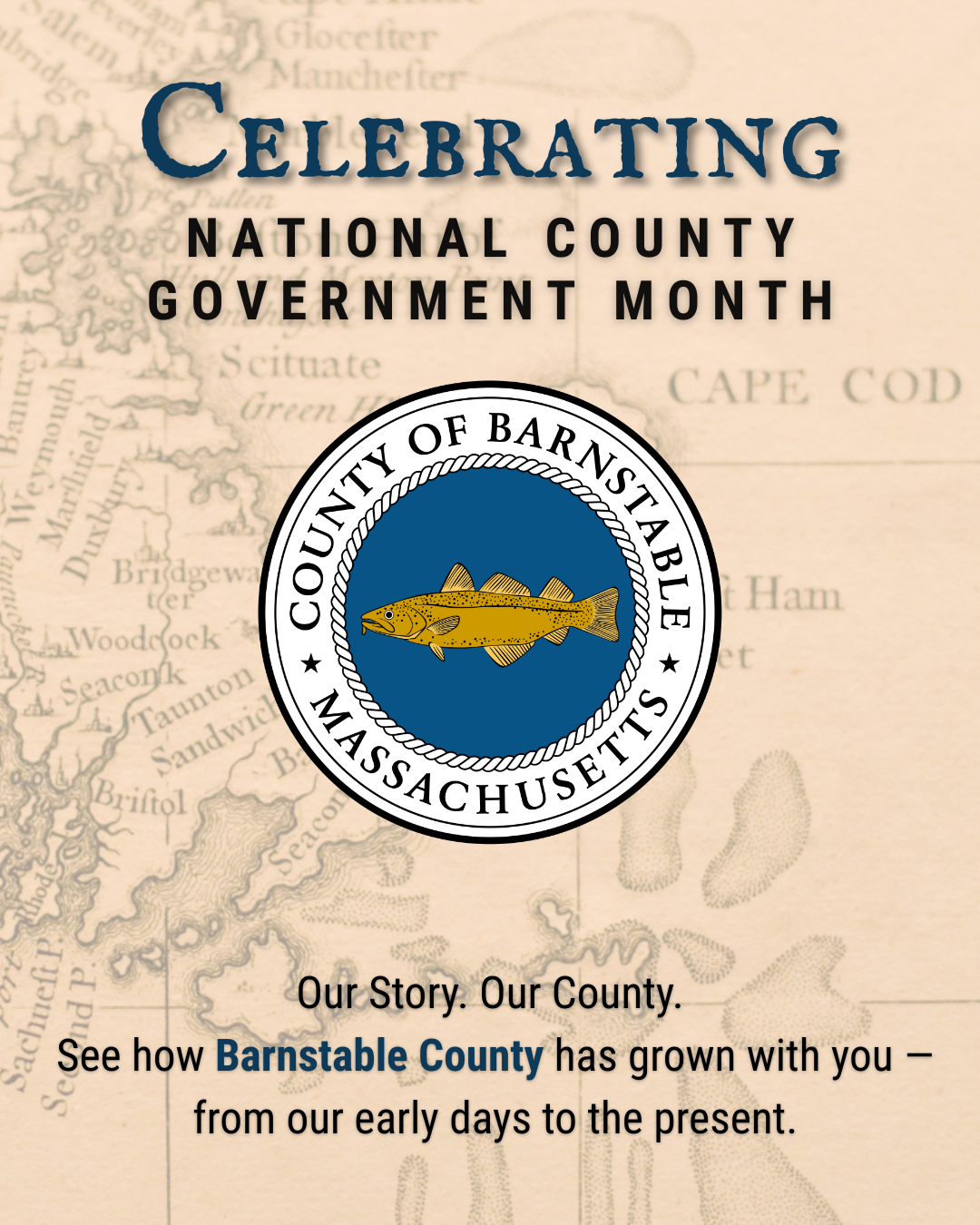
Municipal Propagation

All fifteen towns within Barnstable County purchase young oysters, quahogs, and other shellfish (also called seed shellfish) from hatcheries that are then planted in coastal waters for the benefit of shellfishing programs. As a service to these towns a bid program was developed to provide greater buying power as a group while reducing costs and improving delivery reliability. Since the program was developed in the late 1990’s the MA Division of Marine Fisheries, Barnstable County, Woods Hole Sea Grant, and the individual towns have all provided funds over the years to support the purchase of shellfish seed in bulk.
Since 1999 the County Municipal Shellfish Propagation Program has worked with the towns to coordinate a bulk purchase of shellfish seed; the group purchasing power allows seed to be purchased at a good price and at a set time from local hatcheries. Town staff contact County Marine Program staff with their needs for the year, the County issues a general request for bids and the lowest bidder is awarded the contract.
To get an overview of the amount of seed purchased through this bid program see the tables below summarizing the yearly purchases of quahog seed and bags of oyster seed remotely set on cultch (remote set). A number of towns also purchase additional seed to support their town propagation programs outside of the bid to suit each unique town program.


The municipal shellfish programs take the shellfish seed and grow them to a size where they are less vulnerable to the many predators in the marine environment. The shellfish are then planted in recreational and commercial shellfishing areas to supplement wild shellfish stocks. To learn more about the process of working with remote set oyster, check out the Marine Bulletin on the topic: Restoring Oysters Through Remote Set
A 2009 survey of town shellfisheries documented 17,000 recreational (resident, non-resident, and senior) shellfish permits sold in Barnstable County, and 1100 commercial permits. All these individuals or families involved in shellfishing activity benefited directly from municipal propagation programs and the seed purchased through the county municipal bid program. In addition, this shellfishing activity generates economic activity in the region. A 2002 report (An Economic Valuation of Recreational Shellfishing on Cape Cod by D. Damery and P. Allen) estimated the value of recreational shellfishing to be $7.4 million that year. Also, an environmental benefit is that shellfish promote the cycling and removal of excess nutrients in the water bodies in which they are grown.




